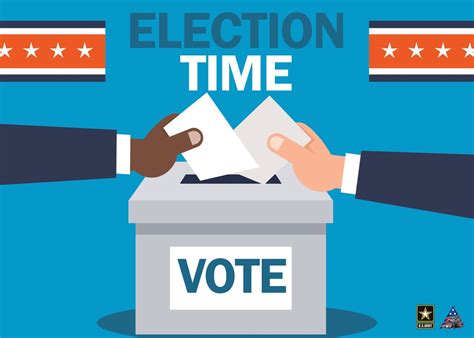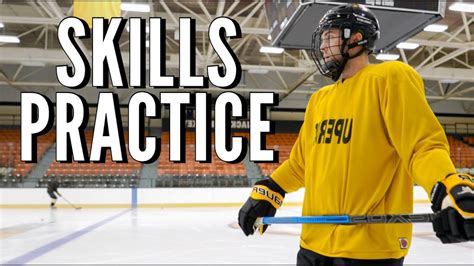Explore the vital role of parents in youth hockey, effective communication strategies, community building, positive encouragement, expectation management, and celebrating milestones together.Hockey is not just a game; it’s a journey that brings together players, coaches, and—most importantly—parents. Engaging parents in their child’s hockey experience is essential for fostering a positive environment and ensuring that young athletes thrive both on and off the ice. From understanding the pivotal role they play to implementing effective communication strategies, parents possess the power to significantly influence their child’s love for the sport. This article delves into the various aspects of parental involvement in youth hockey, offering insights into building a supportive community, promoting positive attitudes, and managing expectations. Celebrate every milestone together as we explore ways to enhance the hockey journey for both players and their families.
Understanding The Role Of Parents In Youth Hockey
The role of parents in youth hockey extends far beyond simply attending games and practices. Their involvement is crucial for the development and well-being of young athletes. Here are several key aspects of how parents can actively contribute to their child’s hockey journey:
- Support System: Parents are the primary support system for their children. Being present at games and practices not only boosts a child’s confidence but also creates a sense of security.
- Encouragement: Positive reinforcement from parents helps build self-esteem. Parents should celebrate accomplishments, both big and small, to foster a love for the game.
- Role Models: Parents should exemplify sportsmanship, respect, and a positive attitude. Young players often emulate their parents’ behavior, so demonstrating good conduct is essential.
- Communication with Coaches: Maintaining open lines of communication with coaches ensures that everyone is on the same page regarding goals, expectations, and player development. This collaboration is vital for a cohesive team environment.
- Volunteerism: By participating in team functions, organizing events, or helping with logistics, parents can contribute to a stronger community. Their involvement can make a significant difference in the overall experience for all players.
The influence of parents in youth hockey is profound. By actively engaging and fostering a positive sporting environment, they have the power to enhance not only their child’s experience but also the overall culture of youth hockey.
Effective Communication Strategies For Hockey Parents
Effective communication is essential in fostering a supportive environment for parents in youth hockey. By developing strong communication techniques, parents can enhance their involvement and positively impact their child’s experience. Here are some strategies to consider:
- Active Listening: Take time to listen actively to your child’s concerns, feelings, and joys related to hockey. This shows them that their opinions matter and strengthens your connection.
- Open Dialogue: Encourage regular conversations about their practice, games, and overall feelings towards the sport. Create a safe space where your child feels comfortable expressing themselves.
- Positive Reinforcement: Use encouragement and positivity in your communication. Highlight their efforts, improvements, and successes, reinforcing their love for the game.
- Stay Informed: Keep up with team communications and ensure you are aware of schedules, changes, and events. Being well-informed allows for effective discussions with your child regarding their commitments.
- Engage with Coaches: Build a collaborative relationship with your child’s coaches. Regularly communicate with them about your child’s progress and any concerns, which can help bridge gaps in understanding.
- Team Meetings: Attend or participate in any team meetings or parents’ gatherings. This promotes camaraderie amongst fellow parents in youth hockey and fosters a community spirit.
By employing these communication strategies, parents in youth hockey can create a more enriching experience for themselves and their children, paving the way for a positive and supportive atmosphere in the sport.
Building A Supportive Hockey Community Among Parents
Building a supportive community among parents in youth hockey is essential for fostering a positive environment that benefits both young athletes and their families. A strong network can enhance the overall experience of the hockey journey, creating friendships and support systems that extend beyond the rink.
Here are several effective strategies for building such a community:
By implementing these strategies, parents in youth hockey can create a thriving, supportive environment that enhances the experience for everyone involved. A strong community not only encourages parents but also contributes positively to the players’ growth and development in the sport.
Encouraging Positive Attitudes In Youth Hockey Players
One of the key responsibilities of parents in youth hockey is to foster a positive mindset in their children regarding the sport. A healthy attitude towards competition and play can significantly impact a player’s development and enjoyment of the game. Here are several strategies parents can adopt to encourage positivity:
By implementing these strategies, parents in youth hockey can help create a nurturing environment that encourages their children to develop a positive attitude towards the game, enhancing both their performance and enjoyment of hockey.
Managing Expectations For Parents In Youth Hockey
For parents in youth hockey, managing expectations can be one of the most challenging aspects of their child’s sporting journey. From the outset, it’s essential to understand that youth sports are about skill development, teamwork, and having fun rather than the pursuit of trophies or elite status.
One of the primary ways to manage expectations is by setting realistic goals. Parents should recognize that each child has a different level of talent and passion for the game. Discussing these differences openly with your child can help align their ambitions with their abilities, reducing potential stress and disappointment.
It’s also vital to foster an environment where effort and improvement are celebrated over mere outcomes. Instead of focusing solely on winning games, encourage your child to take pride in their growth as a player. Highlighting efforts, sportsmanship, and teamwork can create a more positive atmosphere, crucial for a rewarding youth hockey experience.
Additionally, involving yourself in the sport—such as attending coaching seminars or reading about hockey development—can give you insights into the challenges players face. This knowledge allows you to empathize with your child’s struggles and triumphs, helping reframe your expectations accordingly.
Maintaining open lines of communication with coaches and other parents can also help set reasonable expectations. Understanding the team’s objectives, player roles, and coaching strategies can provide a broader perspective on your child’s experience in youth hockey.
By managing expectations thoughtfully, parents in youth hockey can contribute to a healthier, more enjoyable sporting environment for their children, ensuring that their hockey journey is a positive and fulfilling experience.
Celebrating Milestones Together: Parents In Youth Hockey Journey
In the journey of parents in youth hockey, celebrating milestones is a vital element that enriches the overall experience for both players and their families. These milestones can range from the first practice or game, to achieving personal best performances, or even the completion of a season. Recognizing and commemorating these moments not only enhances the child’s confidence but also strengthens the bond between parents and their children.
Parents play a crucial role in creating a celebratory atmosphere around these achievements. Here are some effective ways to celebrate milestones in youth hockey:
- Personalized Celebrations: Dedicate time after games or practices to acknowledge individual player achievements. This can be as simple as a family dinner or a small surprise gifts that reflect the child’s interests.
- Social Media Highlights: Sharing achievements on social media platforms can foster community spirit and allow others to join in the celebration. Parents can post about their child’s progress, making them feel valued and appreciated.
- Team Gatherings: Organizing team events to recognize accomplishments fosters camaraderie among players and families. Celebratory barbecues, fun fairs, or award ceremonies can solidify the community feeling.
- Customized Mementos: Creating a scrapbook or a digital photo album documenting the child’s hockey journey can serve as a cherished keepsake, reminding them of their growth and the support they have received.
Additionally, it’s vital to encourage youth hockey players to celebrate not just personal milestones but also those of their teammates. This helps in developing a supportive team environment, enhancing the overall experience for young players while highlighting the importance of collective achievements in sports.
These celebrations play a significant role in maintaining motivation and passion for the game, reinforcing the invaluable support system that parents provide throughout their child’s journey in hockey.
Frequently Asked Questions
Why is parental engagement important in a child’s hockey journey?
Parental engagement is crucial as it fosters a supportive environment that encourages children to pursue their passion for hockey, enhances their confidence, and reinforces the values of teamwork and sportsmanship.
What are some effective ways to communicate with parents about their child’s progress?
Regular meetings, progress reports, and leveraging digital platforms such as emails or team management apps can enhance communication. It’s also beneficial to provide constructive feedback and celebrate milestones together.
How can coaches involve parents in team activities?
Coaches can involve parents by organizing volunteer opportunities, hosting parent meetings, and encouraging them to participate in team events, which helps build a sense of community and belonging.
What role do parents play during practices and games?
Parents play an essential role by being supportive spectators, providing emotional encouragement, and respecting the efforts of both coaches and players, which creates a positive atmosphere for all.
How can parents best support their child’s development in hockey?
Parents can support their child’s development by fostering a positive attitude, encouraging practice outside of team sessions, and being open to discussions about their experiences and aspirations in the sport.
What are some common challenges parents face while supporting their child in hockey?
Common challenges include managing expectations, balancing sports with academics, handling competitive pressures, and ensuring they don’t inadvertently over-involve themselves in their child’s sporting journey.
How can coaches help ease parental concerns during the hockey season?
Coaches can help by maintaining open lines of communication, offering regular updates on team performance and individual progress, and being approachable for any concerns or questions parents may have throughout the season.









